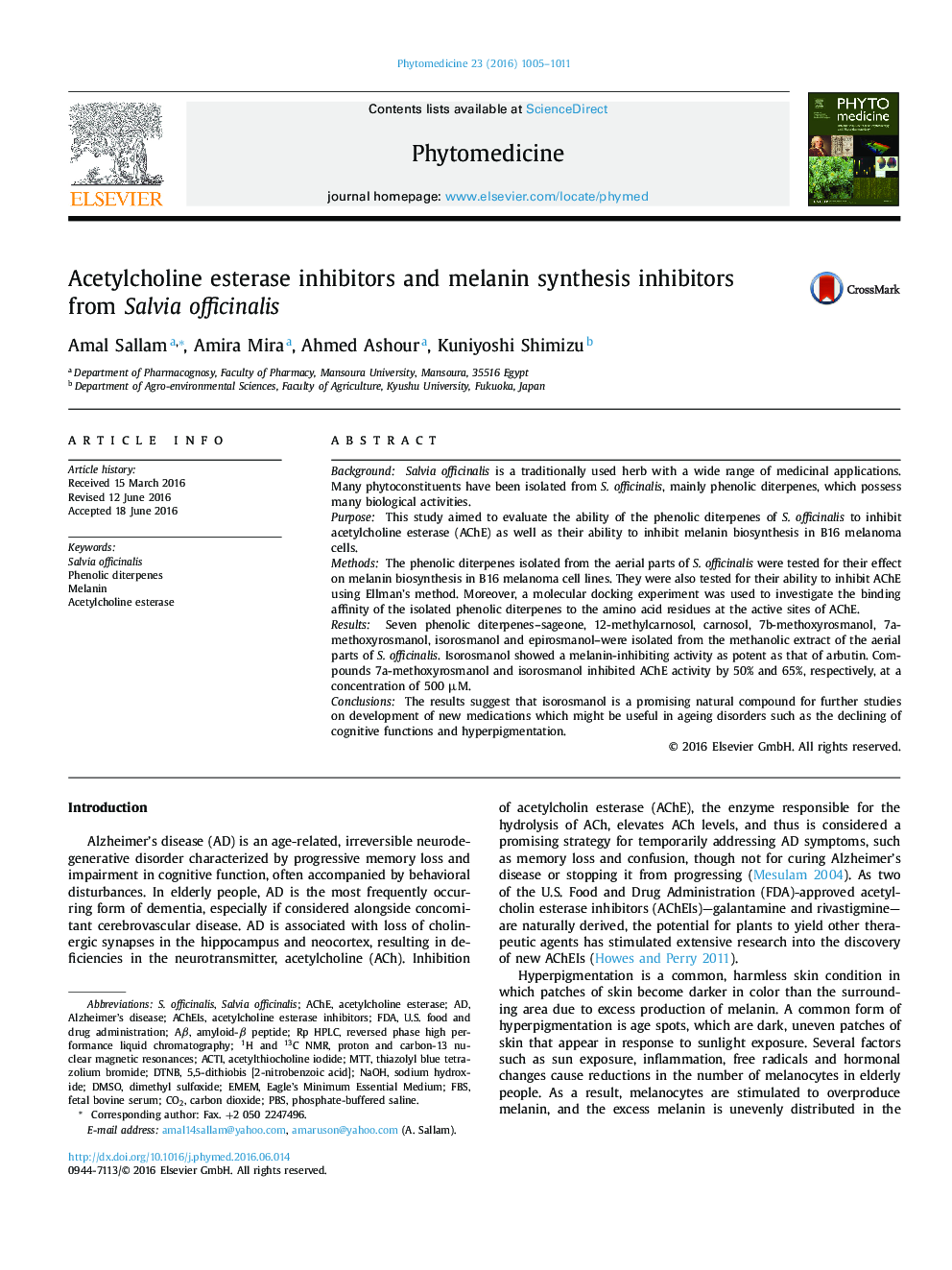| Article ID | Journal | Published Year | Pages | File Type |
|---|---|---|---|---|
| 2496274 | Phytomedicine | 2016 | 7 Pages |
BackgroundSalvia officinalis is a traditionally used herb with a wide range of medicinal applications. Many phytoconstituents have been isolated from S. officinalis, mainly phenolic diterpenes, which possess many biological activities.PurposeThis study aimed to evaluate the ability of the phenolic diterpenes of S. officinalis to inhibit acetylcholine esterase (AChE) as well as their ability to inhibit melanin biosynthesis in B16 melanoma cells.MethodsThe phenolic diterpenes isolated from the aerial parts of S. officinalis were tested for their effect on melanin biosynthesis in B16 melanoma cell lines. They were also tested for their ability to inhibit AChE using Ellman's method. Moreover, a molecular docking experiment was used to investigate the binding affinity of the isolated phenolic diterpenes to the amino acid residues at the active sites of AChE.ResultsSeven phenolic diterpenes―sageone, 12-methylcarnosol, carnosol, 7b-methoxyrosmanol, 7a-methoxyrosmanol, isorosmanol and epirosmanol―were isolated from the methanolic extract of the aerial parts of S. officinalis. Isorosmanol showed a melanin-inhibiting activity as potent as that of arbutin. Compounds 7a-methoxyrosmanol and isorosmanol inhibited AChE activity by 50% and 65%, respectively, at a concentration of 500 µM.ConclusionsThe results suggest that isorosmanol is a promising natural compound for further studies on development of new medications which might be useful in ageing disorders such as the declining of cognitive functions and hyperpigmentation.
Graphical abstractFigure optionsDownload full-size imageDownload high-quality image (118 K)Download as PowerPoint slide
